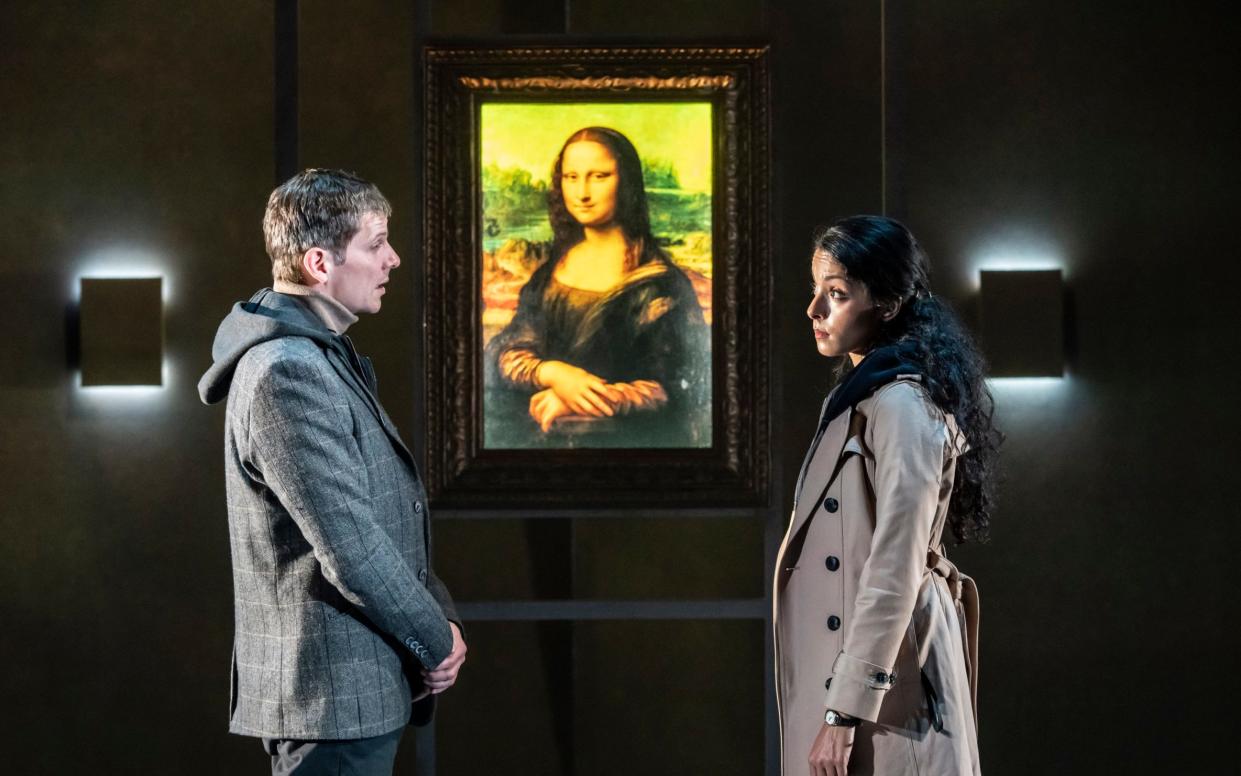The Da Vinci Code, Theatre Royal Plymouth, review: Vatican gets an easy ride in this breathless take on a bestseller

The Da Vinci Code is a byword for “international publishing phenomenon”. It’s also a shorthand for iffy writing: “A novel so bad it gives bad novels a bad name,” quipped Salman Rushdie. It wasn’t just the weave of research and conjectural hokum underlying Dan Brown’s conspiracy theory narrative about the Church and the “truth” about Christ that irked detractors. It was the wording of the narrative itself, from the scoffed-at opening line onwards.
Still, a Hollywood film starring Tom Hanks as Robert Langdon, the Harvard professor of symbology caught up in an epic intrigue, arrived in 2006 and proved popular.
The story evidently worked without the clodhopping narration. Even so, the novel has taken longer to reach the stage, the author granting the rights to two Brits: Duncan Abel and writing partner Rachel Wagstaff. Frustrating though it is to report, it’s hard to decipher whether their adaptation has the potential to achieve a mainstream impact commensurate with its status, or whether it’s destined to be a mere footnote to the global brand.
As things stand, the evening is impressively strong on atmosphere and thriller-ish appeal, but it doesn’t go nearly far enough dramatically. The whole thing whizzes by in little over an hour and 40 minutes, plus interval. The yarn has been stripped back with the ruthlessness that one of the antagonists, the self-flagellating Opus Dei monk Silas, applies to his flesh.
Well-versed fans should be able to keep their bearings, but it’s easy even for the converted to get disorientated, as flashbacks intrude on vital exchanges and time gallops by. The breathless, speed-read approach – augmented by clever video artistry which makes cryptic symbols and Leonardo masterpieces look like they’re hanging in the air – honours the page-turning spirit of the original.
But we’re not enabled to figure things out for ourselves. Just as importantly, we need to be shown more explicitly what’s at stake: the poleaxing of age-old assumptions about Christ, Mary Magdalene, et al. Such controversy as the play possesses feels muted. Why jettison the pivotal character of Bishop Aringarosa? At a stroke, this edges the machinations at the Vatican out of the frame; is that fear of plotting overload, or hesitancy about offending believers? I suspect the latter.
Amid the cavalcade of challenges, Nigel Harman (as Langdon) and Hannah Rose Caton (as the cryptologist Sophie Neveu) struggle to make us care about the grand questions or the personal dilemmas. At the press performance, Andrew Lewis stood in as the sinister Sir Leigh Teabing, owing to a Covid positive test for Danny John-Jules. That the show is on at all is cause for rejoicing. But as yet, it’s no big revelation.
The Da Vinci Code is at Theatre Royal Plymouth until Feb 12, then tours. davincicodeonstage.com


